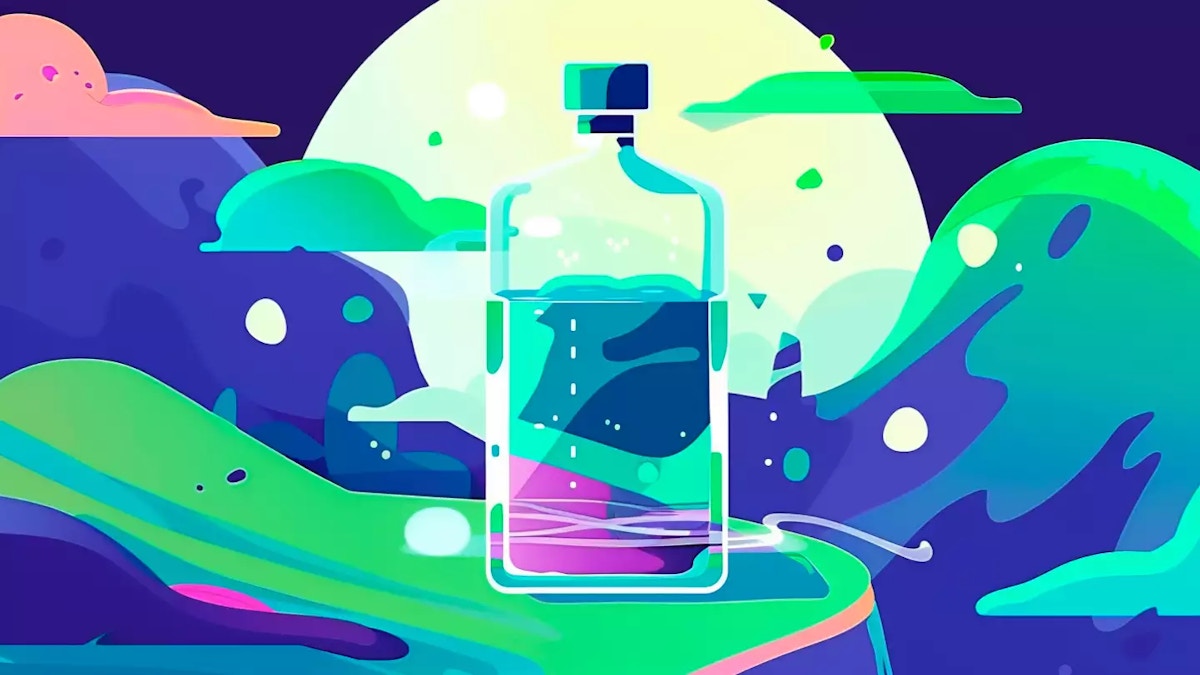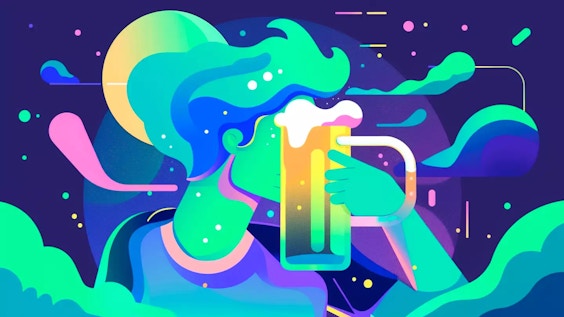I Am Sober is a free app that helps you get some control back in your life.

Alcohol Addiction and Abuse
Last Updated: Thu, April 11, 2024Alcohol addiction is a very prevalent type of substance addiction that impacts people from all walks of life. Part of why it is so harmful is because of how normalized drinking alcohol is all over the world. As harmless as this may seem at first, it can quickly get out of hand and lead to alcohol use disorder.
Here is a breakdown of everything you need to know about alcoholism, such as who it affects, types of alcoholism, and treatment options.
What Is Alcohol Addiction
There are different names for alcohol addiction, such as alcohol use disorder, alcohol abuse, and alcoholism. Something that many people may not realize is that alcohol addiction is a real disease that can come with permanent side effects. It causes real changes to the brain and neurochemistry, which impacts how a person thinks and behaves.
Alcoholism happens when a person is unable to stop or control their alcohol consumption. This often goes beyond social drinking or drinking for enjoyment, turning into something that they use to get through the day.
Another aspect of alcohol use disorder that makes it more complex is that it varies significantly from person to person. There are different degrees of alcoholism, which can be impacted by personality, lifestyle, family history, and type of alcohol use.
Social Drinking Vs. Alcoholism
Part of why alcohol addiction is so dangerous is that it is socially acceptable to drink almost everywhere in the world. Most people start out by drinking socially or because they enjoy how it makes them feel in the moment. The problem is that eventually, people need to drink more and more to enjoy the effects of alcohol.
Social drinking is when you simply enjoy a moderate amount of alcohol in settings where others are also drinking. This can escalate to you consuming more and more in these settings to the point where you become intoxicated or blackout.
Social drinking can also escalate to the point of needing to drink outside of these normal social settings, which is often the pathway to alcohol abuse.
Who Is at Risk of Alcohol Use Disorder?
Extensive research has been done on alcohol use disorder and who it impacts the most. Although alcoholism can affect people from any walk of life and any demographic, there are certain things that can put a person at a higher risk of developing an alcohol addiction. Here are some examples of factors that can contribute to alcohol abuse in some people:
-
Drinking at an early age: When someone begins drinking alcohol at an early age, they build up more tolerance, which results in them needing to drink more to get the desired results. Drinking at an early age also establishes a habit that can continue into adulthood.
-
Family history of alcoholism: Believe it or not, genetics can play a role in alcoholism as this ties into family history. Those who grew up around parents who had unhealthy drinking patterns are more likely to also develop unhealthy drinking patterns. This is because lifestyle has a role in how adults behave, as they often imitate how they see their family act.
-
Mental health issues: Many people start to drink excessively because they are avoiding certain things in their lives. Because of this, people who have depression, PTSD, anxiety, or ADHD may have a higher tendency to develop unhealthy drinking patterns.
Types of Alcoholism
There is a lot of misinformation around alcoholism and how it impacts people. Because of this, there is a significant stigma regarding alcohol abuse. One aspect of alcoholism that many are not aware of is that there isn’t just one form of alcoholism. There are different categories that someone could fall into, which impacts the severity of the addiction and how it should be treated.
Chronic Severe Alcoholic
One type of alcoholism is chronic severe alcoholism. This is the type of alcoholism most people immediately think of as it describes a person who has severe alcoholism and is no longer able to function normally. They may be unable to hold down a job, have multiple alcohol-related health issues, have behavioral problems, and drink throughout the day.
A chronic severe alcoholic is often somebody who is middle-aged and started drinking at a young age and never addressed the unhealthy behavior. They may have a family history of alcoholism or have a mental health condition that contributes to this.
Functional Alcoholic
As the name suggests, a functional alcoholic is somebody who is able to function better in daily life, even if they have a drinking problem. Even though they abuse alcohol, they are usually able to still hold down a job, maintain social relations, and drink in a way that does not have a significant impact on their life.
Functional alcoholics may even be able to go several days or weeks without drinking, but when they do drink, they drink to excess. They may have an issue with social drinking or are in denial about how much they drink and why they drink. It’s important to note that functional alcoholics can also become chronic severe alcoholics if the behavior goes unaddressed.
Young Adult Alcoholic
A large subtype of alcoholics is young adult alcoholics. These are people around the age of 24 who have most likely been drinking and having an issue with alcohol abuse since the age of 20. Young adult alcoholics don’t usually drink as often as other categories, but when they do drink, they drink excessively and have a harder time stopping.
Young adult alcoholics often participate in binge drinking, which comes with many dangers. If left unaddressed, they also have a higher risk of progressing to other types of alcoholism, where they become more alcohol-dependent.
Young Antisocial Alcoholic
The young antisocial alcoholic category often describes young adults in their mid-20s or a bit younger. They usually have a family history of alcoholism and also have a history of abusing other substances, such as cigarettes and marijuana.
As the name suggests, young antisocial alcoholics also have a higher tendency of suffering from antisocial personality disorder. This disorder can often lead to a higher risk of alcohol abuse or turn into an unhealthy way of managing the symptoms of this disorder.
Intermediate Familial Alcoholic
Intermediate familial alcoholism is a more complex type of alcohol addiction that many are unaware of. It is used to describe adults who started drinking at a young age but did not start to have alcohol-related problems until their mid-30s.
These individuals usually have a very normal lifestyle but start to notice alcohol abuse later in life. There is also a link between intermediate familial alcoholism and mental health conditions like depression and bipolar disorder.
Common Alcohol Beverages That Lead to Alcoholism
Part of why alcohol abuse is such a complex problem is because of the different variations between individuals. Because of this, there isn’t a one-size-fits-all solution for everyone who is struggling with alcohol abuse.
One example of a variation that can change the type of treatment you need is the type of alcohol you consume. Here are some examples of the most commonly abused alcoholic beverages and how they impact people.
Hard Liquor
One of the most harmful types of alcohol abuse is when people abuse hard liquor. Hard liquor makes people intoxicated faster and often has a higher risk of causing addictive behaviors.
Hard liquor is also more expensive and has more significant symptoms of intoxication, which can have a greater impact on other areas of your life. Examples of hard liquor include vodka, tequila, whiskey, gin, and brandy.
Beer
One of the most commonly abused types of alcohol is beer. The reason for this is that beer is very accessible and is often the type of alcohol people are first introduced to. It is a milder alcohol, which often leads people to drink it in excess.
For example, some alcoholics may have to drink beer throughout the day to maintain a level of functionality. Even though it is not as severe as hard liquor, it can still come with serious complications if abused.
Wine
Another type of mild alcohol many people end up abusing without realizing it is wine. Wine is not an extremely strong type of alcohol, which is why some people tend to drink more of it to get a buzz. It may start as one glass of wine a night but progress into alcohol abuse as you have to drink more and more to feel the effects.
Mixed Drinks
Many people prefer their alcohol in the form of mixed drinks. Mixed drinks are very common in places like bars, clubs, and restaurants.
Mixed drinks often contain strong liquor that has been mixed with a different kind of drink, such as club soda or coke. These drinks aren’t usually seen as being highly addictive, but many people tend to drink them excessively. Mixed drinks are more versatile, making them easy to abuse if you like a specific type of cocktail or martini.
Symptoms of Alcohol Addiction and Abuse
Because alcohol consumption is so socially accepted in the majority of cultures and even encouraged, it can be difficult to identify the symptoms of alcohol addiction. Many people simply think that they enjoy drinking and don’t think they are abusing it.
In order to seek treatment and begin recovery, you must be able to identify alcohol abuse. Here are some common symptoms you can look for if you believe you may have an alcohol addiction:
-
You are increasing the frequency and amount of alcohol you drink.
-
You have developed a high tolerance for alcohol and do not experience hangovers as much.
-
You have started drinking at inappropriate times, such as earlier in the day or at work.
-
You are going out of your way to be in situations where drinking is acceptable.
-
You have started to feel shame around drinking and are trying to hide how much you drink from your loved ones.
-
You have begun depending on alcohol to get through the day.
-
Drinking leads to dangerous situations, such as driving while intoxicated or drinking alone in public places.
-
You have stopped doing things that you used to enjoy, so you have more time to drink.
-
You can’t stop drinking for a certain period of time without feeling withdrawal-like symptoms.
Health Complications of Alcoholism
Not only is drinking bad for your relationships, career, and general lifestyle, but it can also have a huge impact on your health. Alcohol is something that is relatively safe when enjoyed sparingly but can wreak havoc on your body if used excessively.
Some people may be more vulnerable to the health complications of alcoholism depending on genetics and any current health issues they may have. Long-term alcohol abuse will also come with a higher risk of health complications, such as:
-
Ulcers
-
Diabetes problems
-
Bone loss
-
Disturbed immune function
-
Higher risk of cancer
-
Vision problems
-
Stroke
-
High blood pressure
-
Heart damage
-
Liver damage
Treatment For Alcohol Addiction
If you believe that you have a problem with alcohol, you should seek treatment as soon as possible. A sign that you need alcohol addiction treatment is if you are unable to stop drinking on your own. Seeking help can provide accountability and a support system that is crucial for any kind of addictive behavior.
Medications
Depending on the severity of your alcoholism, a medical professional may be able to prescribe medication. There are three different types of medications approved in the US to help stop alcohol abuse. These are non-addictive medications that are often combined with other treatment options.
Rehab
The most common solution for alcohol addiction is going to a rehab center. These are centers that provide a step-by-step process for those who struggle with addiction. Rehab centers focus on finding the root cause of the addiction, providing behavioral treatments, and preparing you for long-term recovery.
Lifestyle Changes
No matter what treatment option you choose, you will need to make some lifestyle changes. Examples of this include making alcohol as inaccessible as possible in your life. You should also remove yourself from any social settings where there will be alcohol and focus on healthier habits such as eating better and exercising.
Therapy
A very important step everyone should take if they struggle with alcoholism is to attend therapy sessions. You want to find a therapist who has experience with alcohol abuse and can help you address it. They can help you pinpoint the cause of your alcohol addiction, identify triggers, and provide actionable steps to help with your recovery.
I Am Sober is a free app that helps you get some control back in your life.
Relevant articles

Are You at Risk of Developing Alcohol Abuse?

How to Avoid Social Drinking in College

Understanding the Five Types of Alcoholism

10 Signs You Might Have a Wine Addiction

Is Beer Addictive? When Drinking Beer Becomes a Problem

How Do I Stop Evening Drinking?

Addicted to Wine? Top Myths vs. Reality

Advocating For Your Health After Recovering From Alcoholism

8 Lifestyle Changes to Make During Alcohol Addiction Recovery

How to Find the Right Therapist to Help With Alcohol Abuse
